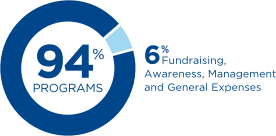Real change begins with resilience and self-reliance.
It’s a challenging time in our world test. Our vulnerable sisters and brothers face disease, disaster, violence and extreme poverty every day. We’ve connected them with a global network of partners, donors and advocates to create solutions that build resilience and self-reliance. With your support, we’re unleashing the grit and determination of 130 million people on today’s biggest challenges. And proving a better world is possible.
For more than 75 years, we’ve been responding to some of the world’s worst natural and man-made disasters to save lives and protect human dignity. While providing lifesaving supplies and shelter is our first priority, we’re equally committed to helping people rebuild and reclaim their lives.
CRS is working with Church and local partners to assist those displaced from their homes by violence, persecution and poverty. In addition to providing safe and dignified shelter, we’re helping migrants and refugees integrate into host communities with education and counseling, employment opportunities, access to health care and legal services.
In collaboration with eight local partners, the SAFERR project provides comprehensive support to refugee women and children in Greece, Bulgaria, Macedonia and Albania. The program nurtures their independence with housing, work, financial support and language classes. In Athens, the CRS shelter team has partnered with the United Nations High Commission for Refugees to identify buildings to rent and upgrade for some 60,000 refugees stranded in Greece. Thirty percent of Athens’ commercial and residential buildings are vacant due to the country’s economic crisis. With overcrowded camps, apartments offer a home instead of a tent.
“Solidarity can change the world when given the opportunity. The SAFERR project is our opportunity to show that in the work we do everyday.”
-Josh Kyler, CRS Country Manager, Greece and Southeast Europe
In Gaza, fleeing the conflict is not an option, so CRS is helping residents and businesses withstand the shocks of daily life. With a $50 million grant from the U. S. Agency for International Development, the Envision Gaza 2020 program was created on the premise that if households can meet their basic needs during times of crisis, and have access to job opportunities immediately afterwards, they will become more resilient. The program provides families with electronic food vouchers that work like debit cards. By allowing families to choose what they want to buy and where they want to shop, the e-vouchers also support the local economy. It’s just one of many ways CRS is using innovation to empower the communities we serve.
Envision Gaza 2020 also underscores the importance of foreign aid, which the administration proposed cutting by 32 percent in 2017. As part of an ongoing effort to mobilize and motivate our U.S. constituents, the partnership between CRS and Catholics Confront Global Poverty rallied advocates around the Save the Aid campaign to preserve this vital humanitarian aid. The campaign resulted in XXX,XXX letters and XX,XXX phone calls to lawmakers across the U.S. With their support, the U.S. House and Senate ultimately passed bills that protected foreign aid through December 2018.
Caption: Watch this video about Envision Gaza 2020 and see how you are helping people be more independent in times of crisis.
Sustainability is built into every solution.
CRS Ethical Trade is yet another way we are engaging Catholics in the United Statesto help their global brothers and sisters build resilience and self-reliance. The program provides access to ethically produced products, education and advocacy opportunities. Through our retail partners, we’re ensuring fair prices, safer working conditions and environmentally sustainable practices to poor and disadvantaged communities. With every purchase, a donation is made to the CRS Fair Trade Fund, which invests in CRS projects around the world.
For example, the Fund supported Trade Aid, an organization that helps the rural poor of northern Ghana find employment opportunities. Ghana’s economy, which relies heavily on agriculture, has been devastated due to drastic changes in their climate. The CRS Fair Trade Fund helped local women procure straw to make bolga baskets when extreme weather wiped out their crops. CRS Ethical Trade partner Serrv International brings these beautiful baskets to conscientious consumers all over the world. Working together, we’re creating more sustainable livelihoods.
CRS is also helping families in East Timor build a safety net against disaster. This young nation is recovering from years of violence, which destroyed entire villages. With the help of our partner Fraterna, the REACT project teaches people how to establish climate resilient gardens so they have enough food for their families and some left over to sell. Vegetable and seed varieties are selected based on their nutritional value, how quickly they grow and their drought resilience. These simple techniques mean families can succeed no matter what the future brings.
Our best chance for a better future: children and youth.
Young people are disproportionately affected by hunger, disease, and conflict. CRS helps ensure children and youth can reach their full potential. Because when young people thrive, the world thrives.
Fifteen years ago, malaria was the leading cause of death in children. It has dropped to the fifth leading cause and an end this deadly diseaseis in sight. With 98 percentof malaria cases occurring in Africa and Asia, CRS is focusing its efforts—prevention, testing, treatment and community outreach—where the need is greatest. CRS has distributed more than 22 million insecticide-treated bed nets in The Gambia, Guinea and Niger. We’ve trained more than 5,500 people to share prevention messages and we’re working with our partners to deliver preventive malaria medication to more than 2.8 million children under age 5 in the Sahel.
Through our network of Church and other partners, our malaria prevention efforts reach every community in The Gambia. Our efforts have helped reduce the country’s malaria cases by 50 percent—putting us on track to eliminate malaria in The Gambia by 2020.





